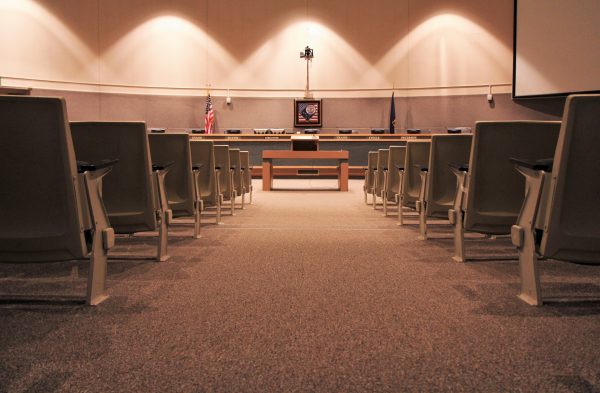
The Anchorage Assembly passed a revised budget Tuesday night. Though modest upward adjustments this time are year are fairly routine, worries about the state budget out of Juneau loom large over local funding discussions.
There were no major surprises in the new numbers. Mayor Ethan Berkowitz’s administration is asking the Assembly for a little less than $2 million more than it originally forecast – not a dramatic request in an overall budget of $517 million.
The administration dropped a request for $450,000 it wanted to use to begin planning a new utility to handle storm water. Municipal Budget Director Lance Wilber said that doesn’t mean the idea is dead.
“While the storm water utility is still a priority of the administration, we’re just going to explore some alternatives for how to do that. So it’s not that we’re not going to progress with that priority, we’re just going to look at it a little differently,” Wilber said.
By removing those funds, the revised budget added money for causes important to assembly members. Those included $355,000 for homeless services and more camp clean-up resources. Also a new position in the police department to support work done on test kits at the state crime lab. And $5,000 for an arts initiative that Assembly youth representative Lily Spiroski said support a project young people care about.
“We paint trashcans and dumpsters and put them around town and just ‘pretty the city,'” Spiroski explained. “Make Anchorage more attractive.”
The Assembly’s main concern is what proposed cuts out of Juneau could do to the local budget going forward. Dropping school bond debt reimbursement, for example, could mean heftier property taxes next year for residents.
“If the Legislature breaks their commitment to the people of Anchorage, your property taxes will increase by $180 per $100,000 of valuation,” warned Assembly member Forrest Dunbar, citing figures from the administration about the effects of a full cut to the program. “This is bond debt we already issued, this is construction that was already done, this is promises they already made.”
The first-quarter budget revision ultimately passed by a vote of 9 to 2, with the two members from Eagle River, Fred Dyson and Crystal Kennedy, opposing it.
The Assembly also passed a measure that asks state lawmakers to look into changing rules for school funding. The non-binding resolution is mostly symbolic, but has the potential to be far-reaching. It is spurred by concerns that the Anchorage School District shoulders the heaviest load in the state when it comes to students with learning disabilities and special needs. It’s an issue that the measure’s sponsor, Dyson, believes could worsen if budget cuts to education cause more Alaskans to seek out special education services in Anchorage.
Supportive Assembly members want lawmakers to examine lifting caps on local contributions to education, so that if state funds diminish the municipality can increase its budget for schools, particularly special education teachers.
Opponents worry that even if the Legislature does examine the constitutionality of the proposal, it may prompt the state to simply lessen how much money it gives to Anchorage. Proponents tried to cut off that possibility through the language in an amendment. The measure passed 7 to 4.
Zachariah Hughes reports on city & state politics, arts & culture, drugs, and military affairs in Anchorage and South Central Alaska.
@ZachHughesAK About Zachariah




